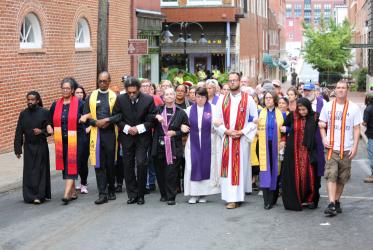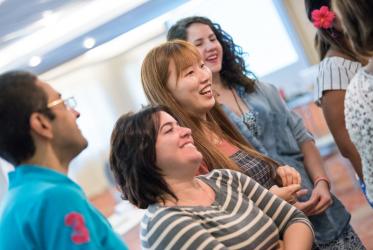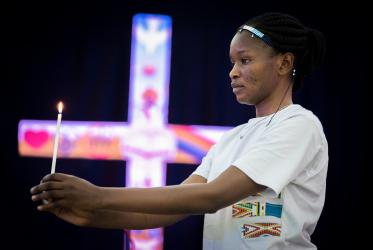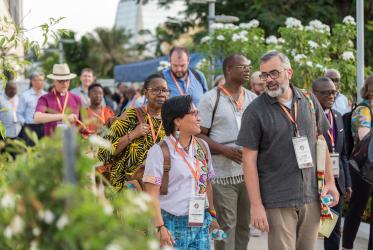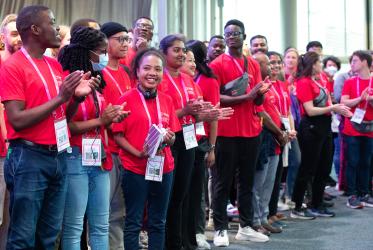Nine young people, from Belgium, Germany, Portugal, Sweden, Switzerland, and the UK met in person to begin to explore the issues they want to raise with European churches, as well as ecumenical and mission institutions.
The Evangelical Lutheran Church in Wuerttemberg helped fund the event.
Discussions covered issues related to identity, belonging, racial injustice, colonisation, and decolonisation as the group reflected on their experience with “transforming discipleship.” The group came from diverse church backgrounds, but all wanted to explore and express their vision of common witness informed by the realities and gifts of being young Black European Christians.
Rebeckah from Sweden commented: “We are claiming our right to be Europeans, with all that we are: faith, nationalities, cultural heritage, language, and skin colour. Being European also means being Black, and we want to celebrate and share our contribution to the European culture and history.”
Many in the group testified in various ways to the challenge of rejection and racism experienced by Black people in Europe, especially from white Christian institutions. Irene from Belgium commented: “As Black people, we are always the ones labelled to be categorized into a subgroup of people who may feel to not belong to the society, and it can be frustrating since these labels are just a way to enhance the disparity and inequality in our society.”

"Young Black European Christians" meeting participants, Geneva, November 2023, Photo: WCC
Transformation stirring
The group’s story sharing and Bible study highlighted the transformation that is stirring in Europe when marginalisation and discrimination are resisted by communities of faith together. Wondibel from Germany commented: “I think common witness does not look a certain way, but rather has an open ear for the voice of Black people. Witnesses have an active role to play in the change we can achieve together, being ready to listen and to deconstruct things that we ought not to think or see as normal or good. I think that is where common witness really changes something.”
Taku from Switzerland highlighted the transforming shift this can make in the thinking and practice of European Christian institutions trapped in White dominant paradigms: “Common witness from the eyes of young Black Christians begins to show a different angle to the lenses we use to see the world and that then allows for further perspectives to be seen.”
The group began to prepare ideas to express through a series of videos.
Rebeckah added: “I hope WCC can help Christian Europeans with African descent to come together for exchanging experiences, knowledge, and resources that can help us grow in our faith and in our social action. I hope we can mobilize to transform our churches and society towards battling colonialism, neocolonialism, racism, and minority stress that affect our lives and well-being. I also want to contextualize liberation theology from a Black European perspective in the 23rd century, and explore how it can inspire us to do our common witness as Christians better in a changing world.”
Wondibel concluded: “I hope that through this project we will be able to create a voice that is not able to be ignored—starting processes that will not only change our own ecumenical environment, but using that global scale that we have to let change happen in Europe.”
Peter Cruchley, director of the WCC Commission for World Mission and Evangelism, and Masiiwa Gunda, WCC programme executive on Overcoming Racism, Racial Discrimination, and Xenophobi, promised that the work with the group will continue and expand. Online meetings are planned to take the ideas further and engage other young people in these conversations, both in Europe and beyond.
Rebeckah concluded: “We had different stories, but we also had a lot of common ground and challenges. It was a healing and empowering experience that made me feel less alone and more hopeful.”

Photo: WCC

